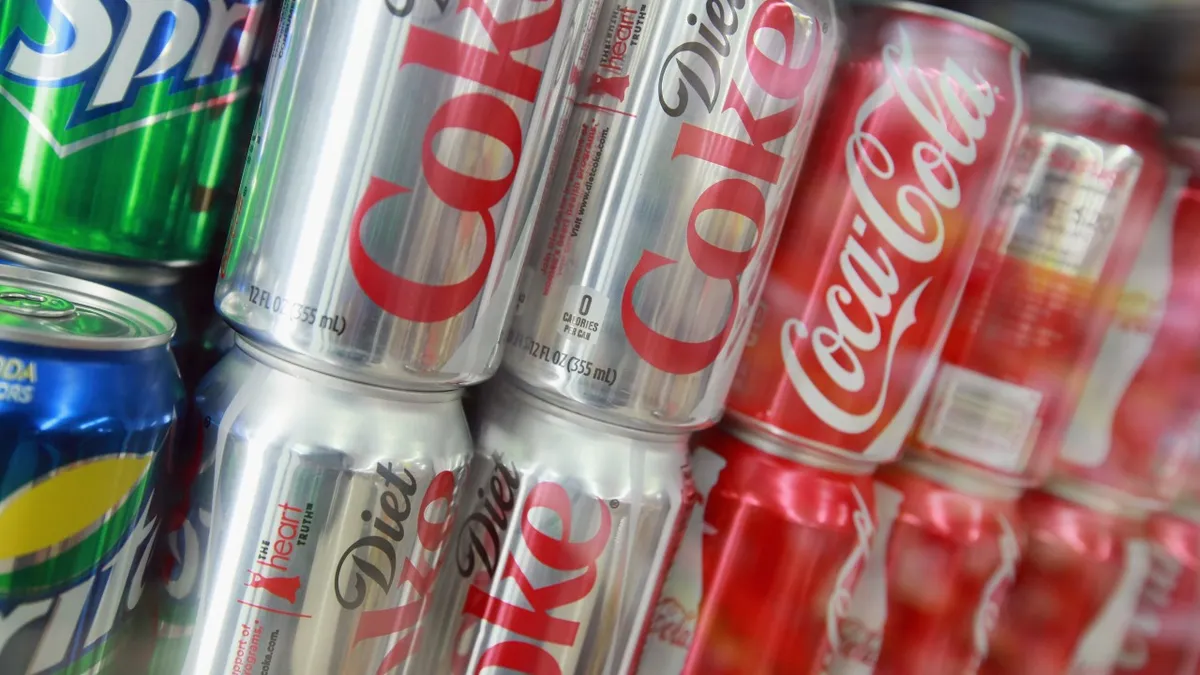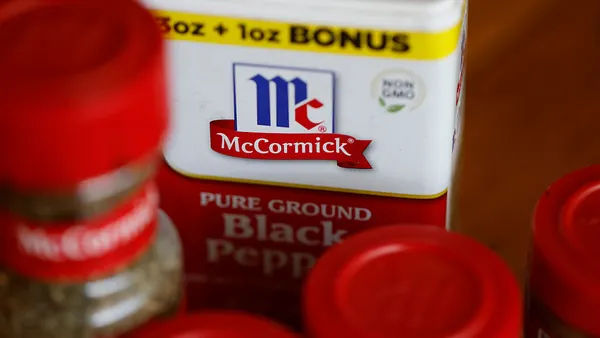Dive Brief:
- A shortage of magnesium could curtail future production of the aluminum alloys used to make the metals in everything from car parts to food packaging, aluminum makers warned in earnings calls.
- China, which produces around 80% of the world's magnesium supply, is cracking down on magnesium producers and other energy-intensive industries as it tries to maintain strict emission reduction targets amid a rising demand for electricity.
- Alcoa CFO William Oplinger said in an October earnings call that "shortages are a concern" after some of its suppliers issued force majeure declarations. Matalco, the largest producer of aluminum billet in North America, warned customers the company may need to curtail production or ration deliveries if the shortages continue, S&P Platts reported.
Dive Insight:
Magnesium is essential to soda cans, building materials and automobiles, and a scarcity of the raw material could worsen an already tight supply environment. There is no substitute for the raw material, and around 75% of all finished products using primary aluminum wouldn't be suitable without it, according to CME Group.
China's low-cost method of producing magnesium allowed it to capture the vast majority of the market and pushed many North American aluminum makers to shutter their plants throughout the 2000s, according to CME. That's left aluminum producers incredibly vulnerable to current supply disruptions happening in China.
In the country's Shaanxi province, which accounts for 60% of the country's magnesium output, smelters received an order mid-September to reduce their output by half, according to the International Magnesium Association. At least 15 smelters were required to stop production altogether, part of China's plan to reduce energy consumption and carbon emissions.
"These curtailments represent one of the largest supplies cuts the aluminum industry has ever experienced, particularly given that they are occurring during a year in which we have seen strong demand growth," said Alcoa CEO Roy Harvey during the earnings call last month.
Alcoa said it has seen upstream suppliers issue force majeure declarations, which allow suppliers to suspend deliveries without liability due to circumstances beyond their control. Kaiser Aluminum CEO Keith Harvey said in a recent earnings call equipment failure also pushed one of its domestic suppliers to declare force majeure, and the company will be speaking to "customers about pass-through of those costs."
Auto and other industry groups warned in a letter last month the European Union may run out of its magnesium supply of in November if China does not increase production. Europe is dependent on China for 95% of its magnesium, the industry groups said, and shortages would threaten thousands of businesses and "their entire supply chains."
The United States isn't as dependent on China for magnesium, and relies on suppliers in Israel, Canada and Mexico, according to the USGS. Still, given China's role as a primary producer, a prolongued shutdown in the country "will have a lasting impact on the magnesium industry and the global economy," according to a joint statement from the China Magnesium Association and International Magnesium Association.
Some signs point to short-term improvements in supply. The majority of large magnesium factories in China's Shaanxi province resumed production beginning at the start of October and "orders to replenish inventory began to increase," according to research group Sunlight Metal Consulting. But the group noted there is still "abnormal production caused by insufficient energy supply."
The winter season could also place additional pressure on production in China over the next few months as more people rely on coal and natural gas to heat their homes and businesses.
"There are still many uncertainties in the smooth operation of [the] industrial chain related to the magnesium industry, which will also have a further impact on production and supply," the research group said.
This story was first published in our Procurement Weekly newsletter. Sign up here.















